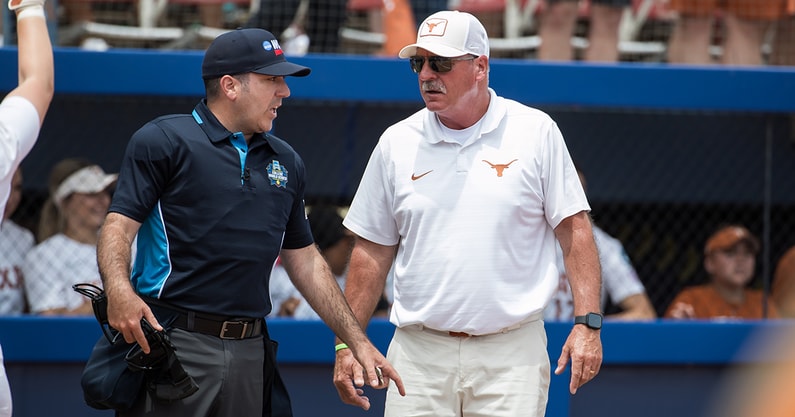2025 WCWS: ESPN announcers call out controversial call that led to Texas Tech run vs. Texas

In the fifth inning of Wednesday’s Women’s College World Series final, obstruction once again became a topic of conversation. Texas Tech challenged a play and argued the Texas defender obstructed the runner’s path to the base – and the umpires overturned the call.
ESPN announcers Michele Smith and Jessica Mendoza disagreed with the call and called it out after the umpires announced the overturn. Obstruction has been front and center throughout the WCWS, and that was the case once again during Wednesday’s game.
“I don’t know,” Smith said on the broadcast. “I don’t agree with that. I’m just going to say it. My opinion is that is not obstruction. We can’t take opportunities away from the players to be able to make the tag.”
Mendoza agreed, arguing Leighann Goode was going for the ball. She also called on the NCAA to change the rule as it is currently written.
“She’s going to the ball,” Mendoza said. “I think they need to change the rule. If it’s where you start the slide, I think subjectively, for the call to be made, ‘Was she obstructing the runner?’ You would say, no.”
Texas Tech later scored the first run of the game when Mihyia Davis scored Logan Halleman, who was running to second and stayed there after the overturned call. That gave the Red Raiders a 1-0 lead.
Top 10
- 1New
SEC ref suspended
New details emerge
- 2Hot
CFB's most-watched teams
SEC flexes in Top 10
- 3Trending
ESPN blackout looms
YouTubeTV standoff
- 4
College GameDay
Newest guest picker revealed
- 5
CFB General Managers
Top 25 highest paid
Get the Daily On3 Newsletter in your inbox every morning
By clicking "Subscribe to Newsletter", I agree to On3's Privacy Notice, Terms, and use of my personal information described therein.
What is the obstruction rule in NCAA softball?
The NCAA changed the obstruction rule for the 2024 and 2025 seasons. The goal is to allow a runner a path to the base while running on a live ball. A play is deemed to be obstruction if a defensive player blocks any part of the leading edge of a base – including home plate – or “otherwise blocks the runner from advancing or returning to a base,” according to Rule 9.5.1.
“Obstruction occurs when a defensive player, neither in possession of the ball nor in the act of fielding a batted ball, impedes a batter’s attempt to make contact with a pitch or impedes the progress of any runner who is legally running bases on a live ball,” the rule states. “It can be intentional or unintentional.”
Once the fielder has possession of the ball, they can be between the runner and the base. Additionally, umpires can call obstruction even if no physical contact occurs, which was the case Wednesday night before Goode placed the tag. It can also occur on a force play.
The rationale, according to the rule, is to “more clearly define the basic tenets of the obstruction rule to help coaches teach their defensive players how to properly defend at the base/plate and to assist umpires in making the correct ruling in these situations.”